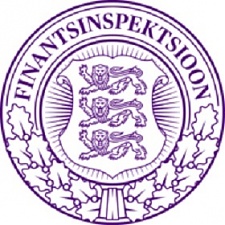Baltic, Banks, Estonia, Financial Services
International Internet Magazine. Baltic States news & analytics
Monday, 05.01.2026, 10:26
Estonian FSA: Intl cooperation of FSAs has taken on new dimensions
 Print version
Print version |
|---|
"Last year can boldly be labeled as the year that the
importance of hindering money laundering stepped onto the stage. The withdrawal
of the activity license of Versobank on the basis of an application submitted
by the Financial Supervision Authority in 2018 due to a serious breach of the
norms of hindering money laundering was a precedent that brought on a change of
paradigm in the whole of Europe," Kessler said in a presentation made to
the Riigikogu regarding the FSA's activity last year.
"It appeared that many European banks were linked with
risky non-resident business in ways in which their control systems were not
able to identify or manage the risks. The Financial Supervision Authority was
one of the first to start tidying up the field already in 2014," the head
of the FSA said.
Kessler said that even though this is not the primary task
of financial supervision by law, the FSA will continue to treat hindering money
laundering and the financing of terrorism in the financial sector very
seriously in the future as well. At that, the watchdog will continue deepening
both domestic as well as international cooperation.
One example of the new dimensions of international
cooperation is the theoretical regional financial crisis prepared by the FSAs
and crisis management institutions of the Baltic and Scandinavian countries and
the European Union at the end of last year and rehearsed at the beginning of
this year. "Similarly to the defense forces, the financial supervision
authorities also hold the good practice of testing their capabilities every
once in a while. The results of the exercise have by now been analyzed, the
bottlenecks filtered and the participants have been given feedback. Estonian
institutions that participated in the exercise did their jobs well,"
Kessler said.
The head of the FSA also drew the MPs' attention to the
insufficiency of monetary fines in the financial sector. "Since 2004
already, we have consistently pointed out to partners that the monetary
penalties in the financial sector are not effective. While they have risen from
3,200 euros to 32,000 euros and in some cases even up to 400,000 euros
over time, these figures are not discouraging enough when it comes namely to
large professional financial mediators," he said.
According to Kessler, the fines should be high enough that
excessive risk-taking and violation of law is not worth it. In addition, it
must be possible to use fines to demand compensation for the violation of
public good.








 «The Baltic Course» Is Sold and Stays in Business!
«The Baltic Course» Is Sold and Stays in Business!

